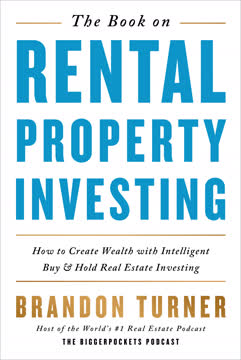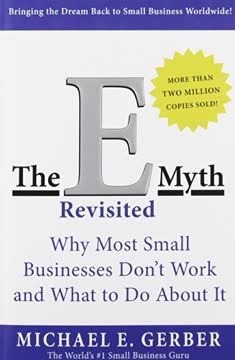Key Takeaways
1. Master the art of information gathering for negotiation leverage
Information is power.
Knowledge is crucial. In real estate negotiations, the party with the most information often has the upper hand. Conduct thorough research on the property, market conditions, and the other party's motivations. Utilize public records, online resources, and conversations with neighbors to gather valuable insights.
Leverage motivation. Understanding the seller's motivation is key to crafting a successful negotiation strategy. Are they facing foreclosure, relocating for work, or dealing with a family situation? This information can help you determine their level of urgency and potential flexibility on price and terms.
Key areas to research:
- Property history and condition
- Local market trends and comparable sales
- Seller's financial situation and motivations
- Neighborhood developments and future plans
2. Build rapport and trust to create win-win outcomes
If someone likes you, they will want you to succeed.
Establish a connection. Building rapport with the other party is crucial for successful negotiations. Focus on finding common ground, active listening, and demonstrating empathy. This approach creates a collaborative atmosphere and increases the likelihood of reaching a mutually beneficial agreement.
Employ psychological techniques. Use mirroring (subtly matching the other party's body language and speech patterns) to build subconscious rapport. Practice active listening by asking open-ended questions and showing genuine interest in their responses. These techniques foster trust and make the other party more receptive to your proposals.
Rapport-building strategies:
- Find shared interests or experiences
- Use the other party's name in conversation
- Demonstrate active listening through verbal and non-verbal cues
- Show respect and appreciation for their position
3. Craft a strategic opening bid to set the negotiation tone
If you're not embarrassed by your first offer, you offered too much.
Balance assertiveness and realism. Your opening bid sets the tone for the entire negotiation. Aim for a price that is low enough to leave room for negotiation but not so low that it insults the seller or ends discussions immediately. Consider the seller's motivation, property condition, and market factors when determining your initial offer.
Incorporate non-price terms. Include favorable terms and conditions in your offer to make it more attractive, even if the price is lower than the seller's expectation. This might include a quick closing, flexible move-out date, or taking the property as-is.
Factors to consider in your opening bid:
- Seller's minimum acceptable offer (MAO)
- Your maximum acceptable offer
- Current market conditions and comparable sales
- Property condition and needed repairs
- Seller's motivation and urgency to sell
4. Use contingencies wisely to protect your interests
Contingencies basically say: If X occurs (or doesn't occur) before closing, the result is Y.
Balance protection and attractiveness. Contingencies are crucial for protecting your interests as a buyer, but too many can make your offer less appealing. Focus on including only the most essential contingencies, such as financing, inspection, and appraisal. This approach demonstrates your seriousness while still safeguarding your position.
Be strategic with timing. Structure your contingencies with clear deadlines and group them into as few expiration periods as possible. This simplifies the negotiation process and makes it easier to manage any necessary renegotiations.
Common real estate contingencies:
- Inspection/due diligence
- Financing
- Appraisal
- Sale of current home
- Title review
5. Navigate renegotiations with a focus on making both parties whole
The goal of renegotiation should be to make each party whole—no more, no less.
Maintain fairness and trust. When issues arise during the due diligence period, approach renegotiations with the goal of restoring both parties to their original positions. This means addressing the specific problem without attempting to gain additional advantages or reopening the entire negotiation.
Address issues promptly. Deal with renegotiation situations quickly and transparently. Provide documentation to support your position, such as inspection reports or repair estimates. Be prepared to offer solutions that are fair to both parties, which may involve price adjustments, repairs, or other concessions.
Common renegotiation scenarios:
- Inspection reveals unexpected issues
- Appraisal comes in below purchase price
- Financing falls through or requires changes
- Title issues emerge
6. Employ advanced tactics to maintain control during negotiations
Friction is your friend.
Embrace strategic discomfort. Some tension during negotiations is normal and can even be beneficial. It demonstrates that both parties are invested in the outcome and can lead to more satisfying results. Don't be afraid to say "no" or to ask for more when appropriate.
Use silence as a tool. After making an offer or counteroffer, resist the urge to fill the silence. Let the other party respond first, as they may offer additional concessions or reveal important information in their discomfort.
Advanced negotiation tactics:
- Asking for the final concession
- Using documentation to support your position
- Appealing to a higher authority
- Bundling concessions strategically
- Implementing a "penalty" for repeated requests
7. Adapt your approach when selling to maximize property value
To list and sell your properties we highly recommend using a professional listing agent who is very familiar with your area.
Price strategically. When selling, set your list price between fair market value and 5% above it. This approach attracts serious buyers while leaving room for negotiation. Avoid overpricing, which can lead to a stale listing and eventual low-ball offers.
Consider the full offer package. Don't focus solely on price when evaluating offers. Consider factors such as the buyer's financing, contingencies, and proposed closing timeline. Sometimes a slightly lower offer with better terms can be more advantageous than a higher offer with more risks or complications.
Key considerations when selling:
- Market conditions and recent comparable sales
- Property condition and unique features
- Buyer's financial qualifications and motivation
- Proposed contingencies and closing timeline
- Potential for appraisal issues
Last updated:
FAQ
What's The Book on Negotiating Real Estate about?
- Focus on Negotiation Skills: The book emphasizes the importance of negotiation in real estate transactions, offering strategies to secure the best deals.
- Expert Insights: Authored by J. Scott, Mark Ferguson, and Carol Scott, it draws on their extensive real estate investing experience.
- Comprehensive Guide: Covers various negotiation aspects, including preparation, rapport building, making offers, and handling counteroffers.
Why should I read The Book on Negotiating Real Estate?
- Master Negotiation Techniques: Provides actionable strategies to improve negotiation skills, crucial for real estate success.
- Learn from Experts: Authors share personal experiences and insights, allowing readers to learn from their successes and mistakes.
- Increase Profitability: Applying the techniques can save money and time, leading to more profitable transactions.
What are the key takeaways of The Book on Negotiating Real Estate?
- Preparation is Key: Successful negotiation begins with thorough research and preparation.
- Build Rapport: Establishing trust with the other party encourages cooperation and reduces conflict.
- Understand Seller Motivation: Knowing the seller's needs provides leverage in negotiations.
What are the best quotes from The Book on Negotiating Real Estate and what do they mean?
- “Both sides want something.”: Highlights the mutual needs in negotiation, crucial for reaching an agreement.
- “The more motivated a seller is...”: Emphasizes assessing seller motivation to determine an appropriate opening bid.
- “If you’re not embarrassed...”: Suggests a low initial offer can create negotiation room but must be balanced.
What negotiation principles are discussed in The Book on Negotiating Real Estate?
- Understanding MAO: Introduces Minimum Acceptable Offer, crucial for formulating offers.
- Leverage and Power: Discusses how leverage shifts during negotiations and influences outcomes.
- Concessions as Currency: Explains that negotiations are built on concessions, leading to successful agreements.
How does The Book on Negotiating Real Estate suggest building rapport with sellers?
- Personal Connection: Find common ground with the seller to foster trust.
- Active Listening: Listen to the seller’s needs and concerns to gather valuable information.
- Use of Names: Using the seller’s name enhances rapport and personal connection.
What strategies does The Book on Negotiating Real Estate recommend for making an initial offer?
- Research and Preparation: Gather information about the property, seller’s motivations, and market conditions.
- Avoid Round Numbers: Non-round figures create a perception of thoughtfulness and seriousness.
- Set an Anchor: Make the first offer an anchor point, ideally lower than your target price.
How can I determine a seller's motivation according to The Book on Negotiating Real Estate?
- Ask Open-Ended Questions: Encourage the seller to share their reasons for selling.
- Listen for Cues: Pay attention to language and emotional tone for insights into urgency.
- Gauge Expectations: Understand the seller’s price and terms expectations to assess motivation.
What are some common contingencies mentioned in The Book on Negotiating Real Estate?
- Inspection Contingency: Allows backing out if significant issues are found during inspection.
- Financing Contingency: Right to withdraw if unable to secure financing, protecting from financial risk.
- Appraisal Contingency: Ensures renegotiation or exit if the property appraises below the purchase price.
How does The Book on Negotiating Real Estate suggest handling counteroffers?
- Be Prepared to Compromise: Flexibility and concessions keep negotiations moving forward.
- Maintain Communication: Open lines of communication clarify misunderstandings.
- Reassess Your Position: Reevaluate goals and motivations after receiving a counteroffer.
How can I make my offer more attractive according to The Book on Negotiating Real Estate?
- Limit Contingencies: Fewer contingencies make offers more attractive to sellers.
- Increase Earnest Money: Larger deposits demonstrate seriousness and commitment.
- Shorten Closing Period: Quick closings appeal to sellers wanting to finalize quickly.
What negotiation tactics are highlighted in The Book on Negotiating Real Estate?
- Priming the Seller: Start with positive aspects to create a favorable emotional state.
- Silence as a Tool: Use silence to prompt concessions or additional information.
- Appealing to Higher Authority: Indicate needing to consult someone else to maintain control.
Review Summary
The Book on Negotiating Real Estate receives mostly positive reviews, with readers praising its practical advice, real-life examples, and detailed strategies for both novice and experienced investors. Many find it valuable for understanding the negotiation process in real estate transactions. Some reviewers note its focus on house flipping, which may not appeal to all readers. The book is commended for its conversational tone and applicability beyond real estate. A few readers find some advice repetitive or simplistic, but overall, it's regarded as a useful resource for improving negotiation skills.
Similar Books










Download PDF
Download EPUB
.epub digital book format is ideal for reading ebooks on phones, tablets, and e-readers.





